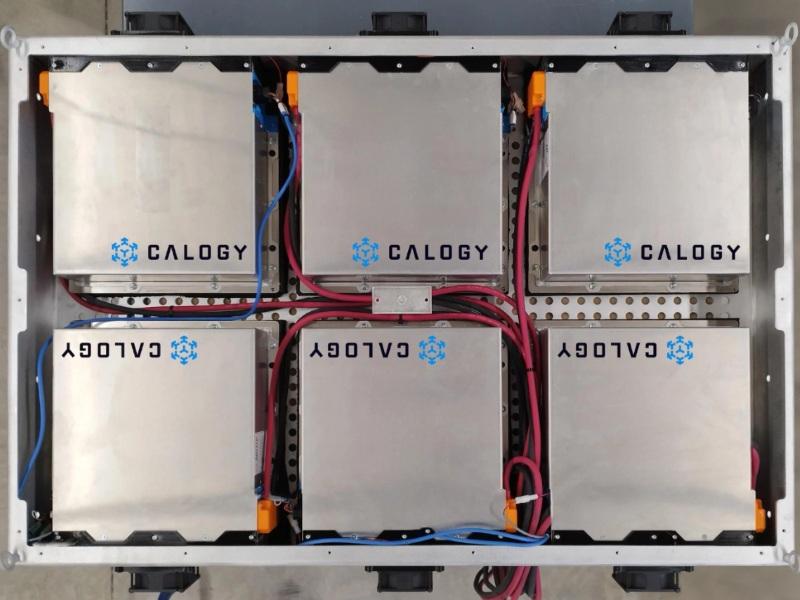
A federal Canadian agency has announced over $25 million in funding for projects, primarily in Quebec, to add public electric vehicle (EV) stations, decarbonize freight transportation and support innovation in the sector.
Natural Resources Canada (NRCan) is investing $9.7 million to help fund the installation of over 850 EV chargers across the country through 23 projects. The chargers will be located in workplaces and multi-unit residential buildings, public areas and along highways, NRCan says. The funds are from the Zero Emission Vehicle Infrastructure Program.
Via the Energy Innovation Program (EIP), NRCan distributed $8 million to six projects to facilitate innovation in the medium- and heavy-duty vehicle sector and address operational challenges for electric fleets.
Finally, the agency provided $7.9 million to four projects supporting the decarbonization of freight operators in the transportation, construction and public works industries.
Of the projects and funding publicized, the largest single amount is $5 million to trucking company C.A.T. Inc., based in Coteau-du-Lac, Que.
Transportation is responsible for approximately a quarter of Canada's greenhouse gas emissions. EVs are a way to reduce the pollution, though Canada is falling behind global leaders on the rollout of EV charging infrastructure, according to Dunsky Energy and Climate.
“Through these projects, we are delivering practical on-the-ground solutions for Quebecers with EVs,” Tim Hodgson, the minister of energy and natural resources, said in a release, “and partnering with Quebec industry to drive the decarbonization of the transportation sector while strengthening our supply chains and energy independence.”
EV charging
The largest chunk of funding for EV chargers went to Propulsion Québec, which received $3 million to install up to 320 Level 2 chargers in public places, streets, multifamily buildings and workplaces across Quebec.
Organizations that received over $1 million are:
- Les Petroles R.L. Inc., received $1.7 million to set up 28 Level 2, and 34 EV fast chargers across Québec;
- Kruger Energie, planning to install 20 fast-charging stations for its fleet of heavy vehicles in Crabtree, Que. with $1.5 million; and
- Zone Signature, which is developing four smart fast-charging stations in Québec totalling 15 charging points. Two of the stations will be in Boucherville, and one each in Repentigny and Québec City.
Hundreds more EV chargers will be installed by organizations such as Indigo Park Canada Inc., Aéroport de Québec Inc., Centre hospitalier de l'Université de Montréal and Canadian Apartment Properties Real Estate Investment Trust (CAPREIT). Their funding ranges from $24,566 to $696,500.
Indigo Park Canada Inc. and CAPREIT plan to use their funds for EV chargers in Quebec, but also Ontario, British Columbia and Nova Scotia.
Innovation funding
Six Quebec-based companies received funding to research, develop and demonstrate innovative technologies for zero-emission vehicle adoption.
Gamotech Inc., based in the Montreal suburb of Blainville, received $2 million to develop mobile energy storage and distribution systems for zero-emission heavy-duty electric trucks. It can be applied to power job-site equipment such as lifts, drills and welders for municipal, public and construction works. Gamotech received the largest funding from the EIP among the cohort.
Three companies received $1.5 million:
- Polara Energy Inc., a Longueuil-based company developing an EV fleet charging infrastructure solution with “significantly improved energy efficiency” and added features such as an integrated energy management system and vehicle-to-grid capability;
- Saint-Eustache-based EV Technologies Inc., which is creating a battery with higher energy density for the commercial vehicle sector that it says will increase safety; and
- Calogy Solutions, working on a project to create a high-voltage lithium-ion battery pack prototype for medium- and heavy-duty vehicles. The company is based in Sherbrooke.
To better equip EV supply equipment owners, charging networks, infrastructure funders and EV owners with data on infrastructure uptime, charging success, power output and reliability, Montreal-based Mogile Technologies Inc., behind the ChargeHub platform, received $930,000.
Also on the list is Destrier Electric, a Montreal-headquartered firm given $600,000 for its project of optimizing the charging of EV lithium-ion batteries in northern or remote regions.
Adding Class 8 trucks
Under NRCan’s Green Freight Program, investment money flowed to the following companies to reduce carbon emissions from their truck fleets:
- C.A.T., which plans to use $5 million to help it purchase 100 natural gas-powered Class 8 trucks;
- Brossard-based Ricova Leasing Inc., which will tap into approximately $1.4 million as it acquires 45 natural gas-powered Class 8 trucks;
- GLS Logistics Systems Canada Ltd., a Dorval-based company planning to buy 15 compressed natural gas Class 8 trucks ($1.3 million in funing); and
- Filgo based in Sainte-Marie, which will use $212,499 to help it add four Class 8 trucks powered by compressed renewable natural gas.










